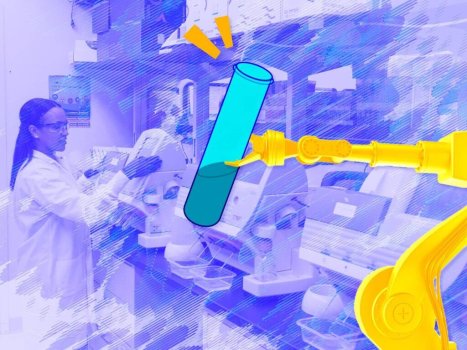Artificial Intelligence (AI) is playing an increasing role in the research process. AI-based algorithms are being used to improve the efficiency of research and to provide new perspectives on explored topics. They are valuable not only in drawing connections between different pieces of information but also in proposing and testing new hypotheses.
AI Research Use Cases
A major advancement in artificial intelligence research recently came with a machine learning algorithm capable of inventing radical new proteins that can fight disease. Also, AI researchers are now developing algorithms that can search for scientific research papers and extract information from them to automatically correct scientific papers. Let’s take a look at some more uses cases of AI in research.
#1: Automated Data
Artificial intelligence is also used to optimize resources in research laboratories, automate the acquisition of data and facilitate the synthesis and analysis of complex datasets. For example, AI has recently been used to help manage the activities in large-scale, long-term studies by providing real-time guidance. An AI system may be able to monitor the health of each participant in a study and alert a scientist if a participant’s status changes.
Continue reading: https://www.iotforall.com/artificial-intelligence-in-research
AI Research Use Cases
A major advancement in artificial intelligence research recently came with a machine learning algorithm capable of inventing radical new proteins that can fight disease. Also, AI researchers are now developing algorithms that can search for scientific research papers and extract information from them to automatically correct scientific papers. Let’s take a look at some more uses cases of AI in research.
#1: Automated Data
Artificial intelligence is also used to optimize resources in research laboratories, automate the acquisition of data and facilitate the synthesis and analysis of complex datasets. For example, AI has recently been used to help manage the activities in large-scale, long-term studies by providing real-time guidance. An AI system may be able to monitor the health of each participant in a study and alert a scientist if a participant’s status changes.
Continue reading: https://www.iotforall.com/artificial-intelligence-in-research

